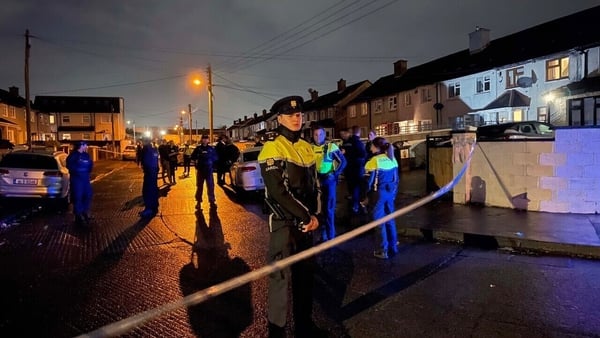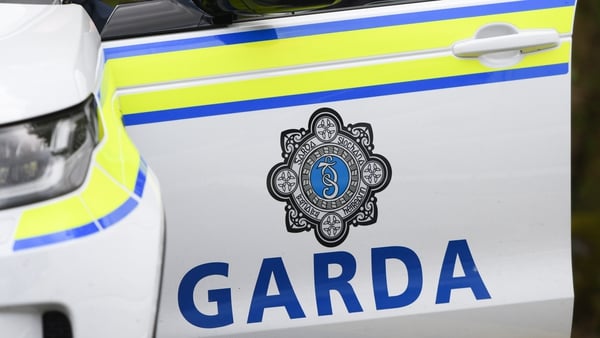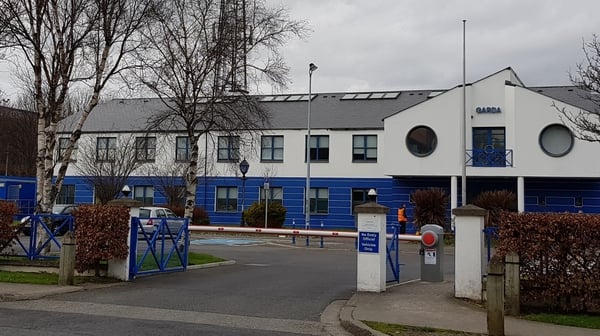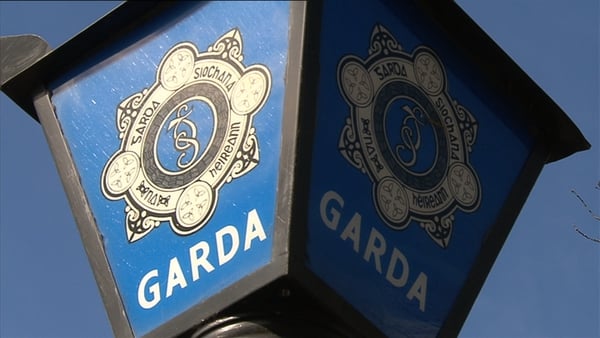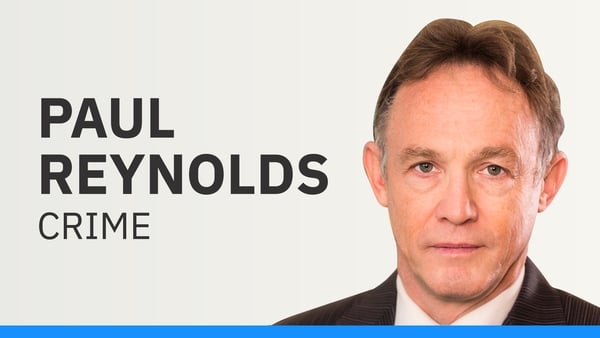"You can't go around all your life in a tracksuit with a bag of cash."
Paul Reynolds reports on the jailing this week of Conor Dolan, the clever gang member who was taken for a mug.
Conor Dolan is not your typical gangland criminal.
He is articulate and intelligent. He is confident and clearly believes in his own abilities.
The 33-year-old left school early and got involved in serious, violent and organised crime.
"And that's all I did," he said.
But his fellow gang members, in the words of one of the senior investigating gardaí this week, "made a mug of him".
They hired Dolan to murder his friend and fellow gangster Niall Fitzgerald, known as 'Ossie' and then refused to pay him in full for the hit.
Dolan then did the rest himself to secure his life sentence for the murder.
He "flashed the cash" that he was paid for executing his friend, then got high on cocaine and told his ex-girlfriend how he did it.
A father of two daughters, who he said have become used to not having him around, Conor Dolan operated as a gangland criminal all over Europe, fronting as a traveller and businessman for years.
He has lived in Belgium and Spain and claims to have leased a bar in Torrevieja, the same coastal town where the leader of the gang that murdered journalist Veronica Guerin, John Gilligan, had his bar, The Judge's Chambers.
Dolan also said he worked as a construction manager in London. He even had his own page on LinkedIn, the business networking site, where he described himself as a "Forex Trader and Entrepreneur".
However, Dolan's main business was drug dealing and prostitution, trafficking cannabis and cocaine and prostituting young girls to make money for him.
He has, by his own admission, a lot of friends who are gangland criminals and who, like him, were involved in transnational drug dealing.
"There's been nights where myself and another man have driven a rental car 20 minutes ahead of a truck that's carrying a half a tonne of weed and we're driving ahead as lookouts," he said.
"I’ve been there keeping an eye out, while people filled up trucks with a load of stuff in the middle of Spain and Belgium and places like that.
"I’ve been to the mountains of Morrocco. I’ve seen where the weed is grown to make the hash."
Long association with criminals
Dolan has had a long association with gangland criminals.
He was a close friend of the late Karl Breen, the so-called 'champagne killer' who stabbed his friend Martin McLaughlin to death at a New Year's Eve party in the Croke Park Hotel in Dublin on 1 January, 2006.
Dolan's friend Niall Fitzgerald worked as a bouncer but was also an enforcer for the Rattigan criminal gang in Dublin.
Fitzgerald had a row with convicted murderer Freddie Thompson, who is currently serving life in prison.
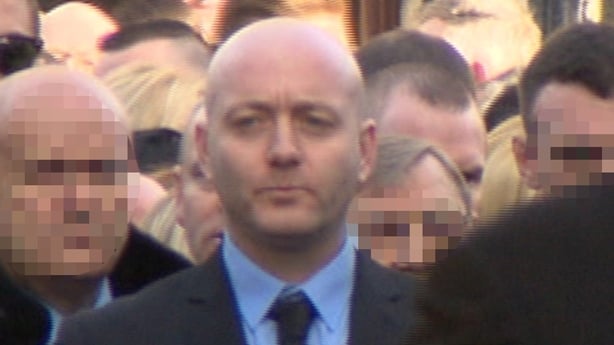
Thompson was aligned with the Gavin gang who, 20 years ago, were involved in another murderous feud, the Crumlin-Drimnagh feud, when their mortal enemies were the Rattigan gang.
At least 16 people were shot dead.
Thompson moved on to join the Kinahan Organised Crime Group and was convicted of the feud murder of Daithi Douglas, who was shot dead in his shop in Dublin city centre in 2016.
In the ongoing Hutch/Kinahan feud, Conor Dolan said the Hutchs are wrong.
"At the end of the day, the Hutchs made the first move when they tried to shoot Daniel Kinahan first and when they shot Jamie Moore (the ex boxer who was staying with Daniel Kinahan in Spain in August 2014) by mistake, that's what kicked it all off," he said.
"If they didn’t try to kill Daniel Kinahan, none of this would have happened. You can't make money when there’s s**t like that going on."
Dolan was jailed for seven years for drug dealing after he walked into an apartment in Athlone he was using to mix and package drugs. Unaware he was under surveillance, he arrived early in the morning to check the product and the distribution operation and was arrested.
"This apartment was being used for mixing and compressing drugs, there was no one living there," he said.
"I went there to check what should be there, what shouldn't be there, unannounced. I walked inside. I wasn't there five minutes when the armed police came behind me through the door. They were waiting for me to go there to jump on me."
History of crime
As well as being a drug dealer, Dolan is also a violent robber, a burglar and a thief, who attacked and threatened people, including a peace commissioner.
He accumulated 32 criminal convictions in the decade from 2008 to 2018.
His 33rd is murder, the most serious, for which he was sentenced last Thursday to life in prison.
Dolan was known as a gunman before he murdered Fitzgerald.
He carried out several shootings, including seriously injuring a man in Crumlin.
For the assassination of his friend 'Ossie', he picked up the gun on 4 June 2016 at the Topaz petrol station in Citywest.
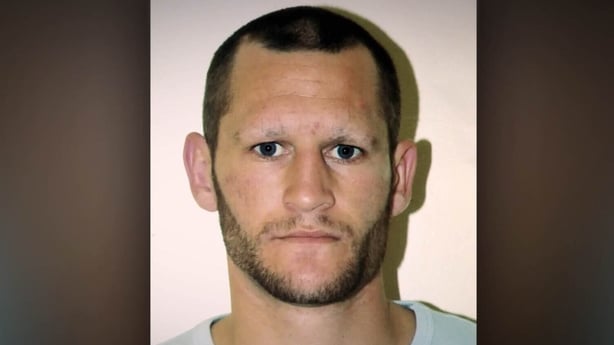
A van pulled up at 3pm and the package was handed over.
'Ossie' spent the day drinking at Madisons in the Square in Tallaght. Dolan was in touch with him and offered to pick him up from the pub.
At 10.25pm, he drove his friend out to Hills Lane, a quiet, rural country lane in the townland of Crooksling off the road from Tallaght to Blessington.
He had planned to murder him there, but gardaí stopped Dolan’s distinctive purple BMW and searched it en route at Fortunestown Lane.
No gun or any other incriminating evidence was found and the pair were let go.
The search was collated in the garda system, but Dolan had already hidden the gun.
The garda stop and search did not however deter Dolan that night.
He drove Fitzgerald out to Hooks Lane an hour-and-a-half later, luring him to the place of his death by telling his friend he had cocaine hidden there.
They arrived around midnight. Fitzgerald started searching the bushes for the drugs.
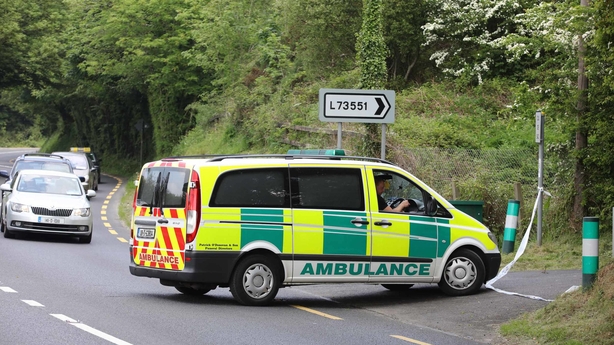
When he wasn't looking, Dolan retrieved the murder weapon from the boot of the car and shot his friend in the back.
Fitzgerald tried to run but Dolan continued to shoot him as he fell. He fired more shots into him as he lay on the ground.
Conor Dolan shot his friend and fellow gangland criminal Niall Fitzgerald six times just after midnight on 5 June 2016.
The 35-year-old sustained nine gunshot wounds, three of which were exit wounds.
Dolan drove away but returned later that morning around 7am.
His friend was still lying where he had fallen.
His body was discovered an hour-and-a-half later by a local resident out for a walk.
The day after
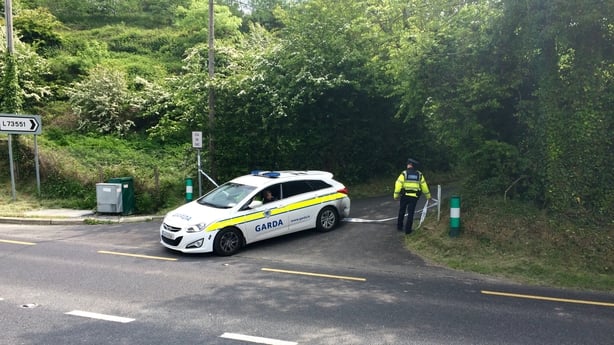
Dolan was quickly nominated as a suspect and, the day after the murder, gardaí arrived with a warrant to search his home in Ashbrook apartments on the Navan Road in Dublin.
It was a hot day, 6 June, but Dolan had lit a fire in the living room.
He was burning a yellow marigold glove and a dual SIM burner phone, which could operate two SIM cards separately.
Gardaí threw water on the fire and retrieved the glove and the phone. In all, they seized 28 items from the apartment, including other phones and a SIM card pack.
Dolan remained outside during the search and Detective Garda Conor Harrison spoke to him. He had cuts on his hand and blood on his tracksuit bottoms.
Detective Garda Harrison asked him where he had been on the day of the murder.
Dolan said he wasn't sure.
"I’m trying to get it straight in my head," he told the detective.
The detective became suspicious of Dolan's answers and arrested him for withholding information.
He was interviewed 12 times and each time denied any involvement in the murder.
He was released without charge and the investigation continued.
Gardaí carried out what's known as "a cell dump" from the phone cell site near the murder scene. They identified all the phones that had registered on it around the time of the murder.
All but two were local, those of Conor Dolan and Niall Fitzgerald, the murderer and his victim.
Meeting with ex-girlfriend
Gardaí also spoke to Dolan's former girlfriend and the mother of one of his children.
They were no longer in a relationship when he carried out the murder, but she told gardaí that when she heard about the killing, she suspected the victim was 'Ossie', whom she knew to be a friend of her former partner.
A day or two after Dolan had been released from garda custody, he contacted his old girlfriend.
He asked her to come over to his home.
When she arrived, she knew he had taken cocaine.
"He would tell you everything after sniffing," she said.
"He told me he drove Ossie out, passed a turn, up a laneway and told Ossie he had something to pick up there. Ossie began searching the bushes and when he was searching, he got a gun out of the boot of the car, came up behind him and shot him.
"Ossie ran for quite a while before dropping to the ground", she said he told her.
"He said he stood over Ossie and shot him as he fell and fired more shots as he was on the ground."
Dolan told his former partner that he returned the following morning when "the sun was coming up" and described how the body looked before he drove back to Tallaght.
He also told her that he had been "stiffed" by the gang that hired him to carry out the hit.
He had been promised €20,000 to kill his friend but had only been paid €10,000.
His former partner also said she saw Dolan and his new girlfriend after the murder.
"He was well dressed and had loads of cash and she was wearing a Michael Kors watch, which he had bought for her," she said.
She took this as confirmation of the truth of what he was saying. He had carried out the murder and had gotten paid for it, albeit, only half of what he had originally agreed to do it for.
Dolan's re-arrest
The following year, 2017, Dolan was re-arrested because new information about his involvement in the gangland murder had now emerged.
This time he exercised his right to silence.
He left the country after he was released, but after the DPP assessed the evidence, she directed he be charged with murder.
Dolan was arrested by UK police in London on foot of a European Arrest warrant on 15 May 2020.
He was remanded in custody until he was sent back to Ireland and arrested by Detective Garda Harrison at Dublin Airport.
An experienced prisoner, Dolan understands the different penal systems in different countries and knows how to survive and thrive within them.
He spent 14 months in Wandsworth prison in the UK before he was sent back here to be tried for murder.
Irish prisons, he says, are far less volatile than UK prisons where the violence is more random and unpredictable.
"In Irish prisons, there is more politics and more structure," he says.
"Someone is always in charge and they don't like when trouble starts because it always brings heat on the landings. Unless it's very necessary, it doesn't happen. But if someone really deserves it, I’ve seen some bad, bad things happen."
Prison attack
Dolan says he is a boxer and well able to handle himself in prison. He broke another inmate's teeth in a row over his prison dinner in the UK.
At around 4pm on 17 April 2021, Dolan approached the prisoner and complained he had gotten the wrong food. He became increasingly angry and threatening.
He then attacked the man, punching him in the head and body.
A prison officer saw what was happening on the landing.
He blew his whistle to alert other staff who arrived and broke up the fight.
Two days later, Dolan received a prison charge sheet which he posted on his Instagram account, as well as boasting about the attack.
"Messed with my food, broke his teeth," the caption said.
Some of Dolan's friends and followers on Instagram have also posted details of his prison number and address online saying: "If anyone wants to write to him just include his prison number along with his name and address."
While on remand in the Midlands Prison awaiting his trial for murder, Dolan clearly studied the book of evidence against him and became "a bit of a jailhouse lawyer".
He didn't believe the evidence was there to convict him.
"It's a murder case where they have no witnesses, no DNA, no fingerprints and nobody knows how many people were involved, what happened or what went down," he said.
Interview with former inmate
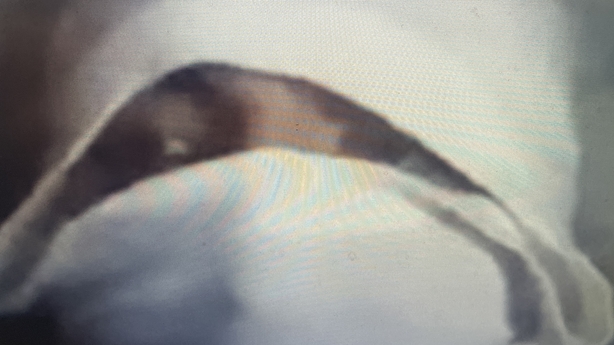
Dolan also thought the case that convicted murderer Graham Dwyer won at the European Court of Justice would benefit him.
He was so confident that gardaí had built their case against him on inadmissible phone data, that he gave an interview to a former UK inmate, now a journalist, on a smuggled-in mobile phone from his cell in the Midlands Prison.
Christian Morgans runs KRN TV, an online TV channel. He interviews former and current inmates.
Morgans said that some of his friends were in Wandsworth Prison prior to Conor Dolan's extradition and put him in touch with the gangland killer.
Morgans said he strongly advised Dolan against doing the interview but Dolan insisted. He says Dolan wasn't worried about getting into trouble and enjoyed the notoriety.
Dolan covered his face and head so only his eyes were visible on screen during the 20-minute interview in November 2022.
However, he was quickly recognised and identified as the inmate on the mobile phone in the prison.
He was subsequently disciplined by the Prison Service and lost some of his privileges in prison.
But Dolan had clearly clear thought through what he wanted to say.
He outlined in detail and in a highly articulate, if somewhat inaccurate, stream of consciousness, the reasons why he believed he would be acquitted.
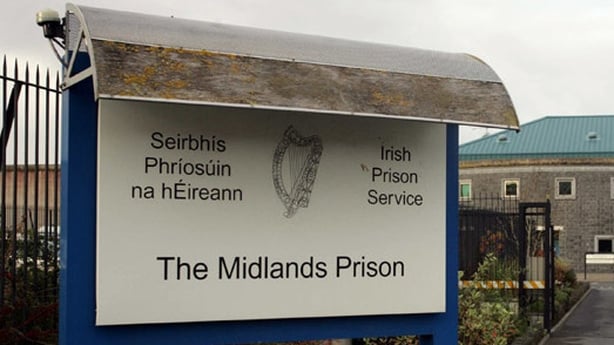
"When they arrested me the day after the murder," he said, "they didn't take any phones off me with anything of evidential value on them.
"They then went to the nearest cell tower to the murder scene and they looked at every phone that was active on that whole cell tower.
"And they illegally obtained the data of all those people, of all them phones and then they narrowed it down to a burner phone that they think was belonging to the killer that was only active for three days and never turned on again after the night of the murder, blah blah blah.
"And then they're trying to say they could link that phone to me across the three days that it was active."
He then went on to explain why he thought the case against him would collapse.
"All this data was all got without any independent oversight and without any warrants, so, under the Data Regulation Act of 2011, from 2011 to 2018, the garda were able to access everybody's phone data and internet data without warrant and without any independent oversight, which the European Court has now ruled as invalid and a privacy breach, which means nothing gathered can be used in a criminal proceeding."
His expectations of an acquittal were however dashed last July.
What was surprising was that Dolan dashed them himself.
Court proceedings
He never put forward his argument that the case against him should have been thrown out on the grounds of illegally-gathered and inadmissible evidence.
His first trial collapsed after he successfully argued that the jury could have been prejudiced against him because prison officers had approached and stood near him in court.
A new trial with a new jury commenced, but two days in to his second trial, he unexpectedly changed his plea to guilty and admitted he had murdered Neil Fitzgerald.
It's not clear why Conor Dolan changed his plea. Detectives believe "he was told to take a bow" to protect another organised crime group.
There appears to be some information in his book of evidence about the activities of other criminal gangs that they didn't want aired in public.
This information would have come out during the court case if proceedings hadn't been abruptly halted by Dolan’s admission to murder.
Dolan hadn't planned to serve a life sentence in prison for a gangland murder.
Prior to his conviction, he laughed at previous suggestions that he would get out of the business of organised crime and insisted he had no regrets.
Conor Dolan will be at least 53 years old before he steps out of a jail again, even on temporary release.
His life choices and circumstances have changed forever, a possibility he always recognised when he acknowledged the ultimate futility of organised crime.
"When I was younger, when I was like 16,17, 18, you didn't want to work," he said.
"You just thought, I’m just gonna break the law and not work, f**k that. But when you get older, you realise, you do have to have a job.
"You do have to have a bank account. You just can't make bags of cash, you can't do anything with that. You have to learn what to do with it and how to make your money grow.
"You can't go around all your life in a tracksuit with a bag of cash."


